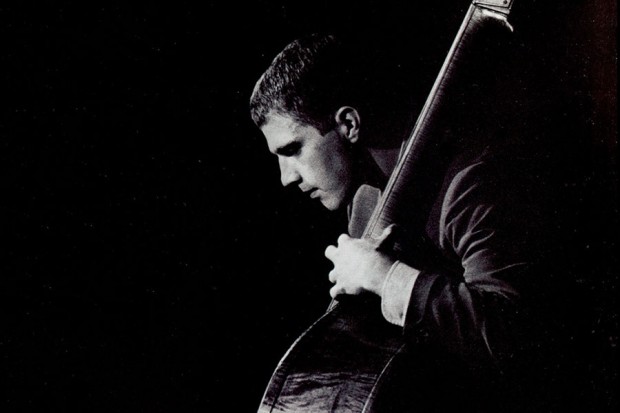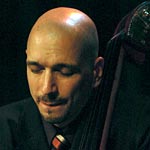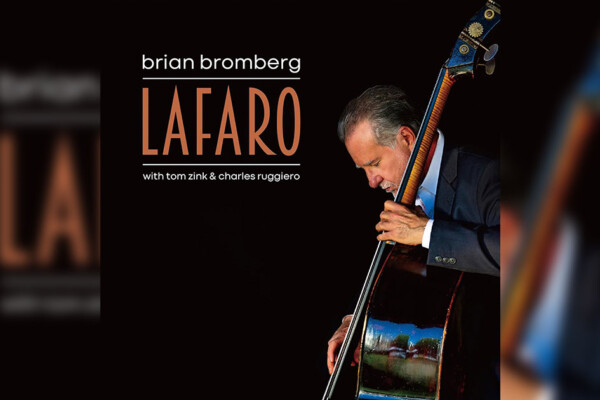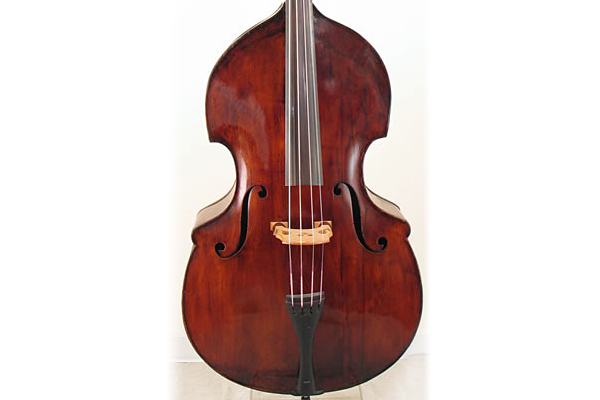Listen: Lessons Learned from Scott LaFaro

In the past four years or so, I’ve been asked to write or speak about Scott LaFaro many times. Each time I delve back into the experience, I find another side of the story to tell. That’s because my brain is constantly processing all of the information that I put into my head by transcribing all of LaFaro’s solos from the Bill Evans records Waltz for Debby and Sunday at the Village Vanguard, not to mention the hundreds of hours I’ve spent listening to them.
This time around, I feel like talking about my first impressions of Scott, and how they affected my musical journey – simply by listening.
These are three of my favorite musical constants in the universe:
- Hard work really does pay off (exponentially).
- No matter how good you think you are (or, should I say, just when you think there’s not much more to learn), you discover a whole new way to expand your playing.
- Listening is fundamental. Listen, listen, listen!
- Don’t multi-task! Sit down in a quite room with as good a stereo as you can get your hands on and listen to a whole record.
- Know what the names of the musicians are on the record.
- Listen so much that you can sing along with the recordings.
- When you finish listening to a record, go back and listen to the whole thing again but focus on another instrument.
- Listen to CDs and LPs, not mp3s. We imitate what we hear, and if you are constantly listening to low quality mp3s, then that’s the sound you’re going to have in your head. Believe me, it happens at a sub conscience level. (Maybe I’ll write an article devoted to that topic someday…)
Here is how these have tied into my experience with LaFaro…
I have been a fan of the Bill Evans trio with LaFaro on bass since I first discovered jazz when I was 18 years old. Actually, I began my jazz-journey with that trio. I was in a record shop the summer before I started college, and I was completely at a loss for which records to buy. Lucky for me, I decided to admit my ignorance to someone at the shop, who in turn asked me “what instrument do you play?”
Since I was just about to pick up the acoustic bass for the first time that fall, he said “Here, you should definitely own these two records” and handed me Waltz for Debby and Sunday at the Village Vanguard. Both recordings come from the same afternoon recording session, and have since been released as a box set, complete with alternate takes, called Bill Evans – The Complete Village Vanguard Recordings: 1961. It’s a must have!
Now here’s the interesting thing about having those two particular records be your first exposure to jazz. Since I hadn’t really checked out any acoustic bassists at that point, I just figured that’s how much facility ALL jazz bassists probably have. Therefore, I didn’t pay much attention to how amazing his technique was. I mean, technique is just technique, right? All you have to do is focus on your technique for eight hours a day and you can play anything. Really, I’m not kidding. Try practicing in two hour blocks four times a day for just one month. You will be shocked at how much easier it is to get around your instrument. Incidentally, if you’re young and unmarried and childless, this might just be the only time in your life when you can devote that much time every day to practicing. Take advantage of it while you can!
Anyway, back to my story. From the very beginning, I wasn’t focusing on LaFaro’s facility and technique on the bass. What really spoke to me was the passion that came through his playing. Now that is something that’s hard to get together in a practice room. How to bring emotion into your playing can be hard to figure out, and often difficult to work on in a practice room. For the most part, one day you wake up and just “get it”. You understand music on a different level, and your playing changes because of it. Passion is something that develops in your brain and heart and is an extension of your personality. Each of us has something in there deep down. We have to find that magic key that unlocks our inner spirit – that thing that makes you unique in the universe. Try to make every note sound like it’s your last. Most everybody has musical ability, but it seems that not everyone realizes that they’re missing emotion in their playing.
You know what I’m talking about. We’ve all see the person that can play any scale known to man, up and down the fingerboard, half asleep, blindfolded, while eating a sandwich. Basically, they have technique out the wazoo, as the saying goes. But, when they play in front of an audience, there is just something missing. To contrast that, we’ve also seen the cat who, armed with little more than three chords, can make you want to get up and dance, get out and rock, or sit down and cry. And then, there is that special person, the person who has everything – amazing technique on the instrument, and the innate ability to express himself through music and pull you in. That was LaFaro. I feel very lucky that the very first lesson I learned in jazz was to focus on making music and not work on chops.
His focus on music wasn’t confined solely to his bass solos. It was present at all times, whenever he had the bass in his hands. It permeates the whole trio. All three musicians in the group had that ability to transcend their instruments and become one. They didn’t sound like three musicians, they sounded like a trio, one entity. The sum was greater than the parts, and the finished product was pure music. Ever since I first heard those recordings, I’ve tried to approach music that way. To make the group, no matter how many members, one person. I learned that lesson simply by listening to those records over and over, without even having a bass in my hands.
You can learn technique, but it can be tricky to learn music. I’ve learned more about making music by listening than I have my sitting alone in a room practicing technique. When I had that realization, I started finding ways of honing my technique buy creating mental and physical exercises on the instrument that kept me focused on making music. Unfortunately, I’m out of space to talk about that. Maybe next time!
Now get off of your computer and listen, listen, listen!
Phil Palombi is the author of Scott LaFaro - 15 Solo Transcriptions in which he transcribed all of Scott LaFaro’s bass solos from the Bill Evans recordings Sunday at the Village Vanguard and Waltz for Debby. Phil has also recorded a solo CD featuring Joe Labarbera and Harold Danko, and co-leads a trio named “Tri-Fi”. Visit him online at philpalombi.com.




Great article, and great advice Phil! I think your advice is applicable to any instrument as well. I am going to refer my students to this, thanks!
Great artclce!
Wow, this was an amazing article. Mr. Palombi is right when he talks about listening. Listen, and then transcribe!
How lucky we are to have those recordings of Scott and Bill! Thanks for putting together such a great article, Phil!
You ROCK!
Phil, preach it! Good stuff. I’m interested to hear your take on CDs/MP3s also.
Billy.
[…] […]